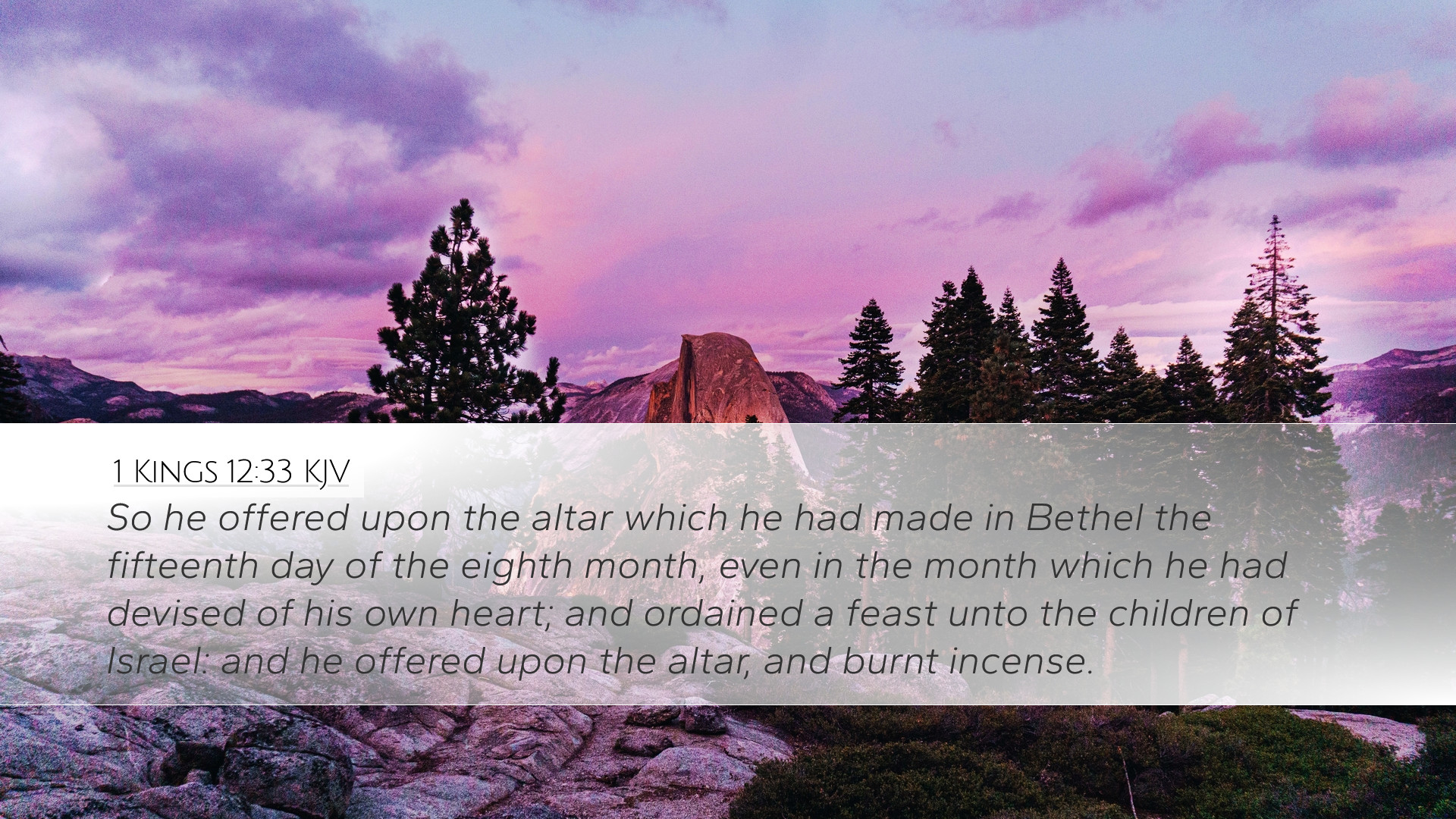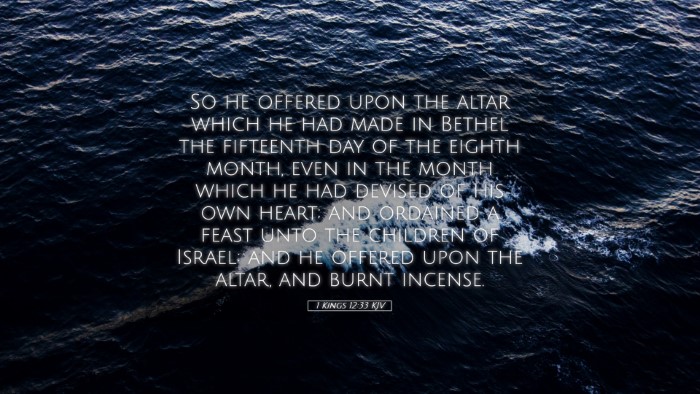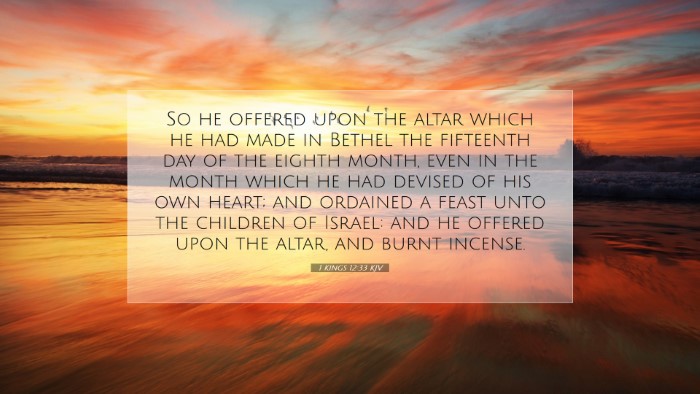Commentary on 1 Kings 12:33
In 1 Kings 12:33, the scripture reads: "So he went up to the altar which he had made in Bethel on the fifteenth day of the eighth month, even in the month which he had devised of his own heart; and he made a feast unto the children of Israel, and offered upon the altar, and burnt incense." This passage encapsulates significant themes within the narrative of the Israelite monarchy and the religious practices that diverged from the covenantal traditions mandated by Yahweh.
Context and Setting
This event occurs shortly after the division of the united monarchy following Solomon's reign. Jeroboam, fearing the loss of his kingdom due to the allegiance of the Israelites to the temple in Jerusalem, enacts measures that lead to the establishment of a rival religious system. This is critical in understanding the motivations that underpin his actions in this verse.
Insights from Commentaries
-
Matthew Henry's Commentary:
Henry emphasizes the tragedy of Jeroboam's choices. He notes that Jeroboam's innovation was not merely a political maneuver but a deviation from the established worship of Yahweh in Jerusalem. This indicates a broader theme of human propensity to alter divine commands for personal or political gain. Henry warns of the dangers of worship that is fashioned according to human desires rather than divine instruction.
-
Albert Barnes' Notes:
Barnes highlights the timing of Jeroboam’s feast, showcasing his attempts to draw the people of Israel into idolatry. The mention of "the fifteenth day of the eighth month" suggests a calculated move to parallel existing religious festivals, thus appealing to the people's familiarity with worship rituals while stripping them of their association with Yahweh. This underscores the manipulative nature of Jeroboam’s leadership and the consequences of introducing worship practices detached from divine revelation.
-
Adam Clarke's Commentary:
Clarke delves into the motivations fueling Jeroboam's actions. He points out that Jeroboam, in a bid to consolidate his power, devised his own religious practices and festivals. Clarke reinforces the notion that such alterations stemmed from a heart unsubmitted to God, reflecting a willful rejection of divine order. The assembly of a feast plays into this narrative of accessible yet erroneous worship, and Clarke urges readers to recognize the risk of deviating from God’s prescribed worship.
Theological Implications
The passage invokes critical theological discussions concerning the nature of worship and its implications in the life of believers. Throughout biblical history, the act of worship has been tethered closely to obedience and adherence to divine instructions. Therefore, Jeroboam's innovations lead us to ponder the idolatry of the heart, where human ingenuity seeks to replace divine authority. This tension resonates with contemporary issues surrounding the integrity of worship practices and adherence to scripture.
Application for Pastoral Ministry
For pastors, Jeroboam's story serves as a vital cautionary tale. The inclination to "create" relevant practices that compromise doctrinal purity can lead congregations astray. The quest for relevance and engagement should never come at the sacrifice of fidelity to God's word. Pastors are tasked with the responsibility of ensuring that the traditions and practices they cultivate within the Church are continually aligned with biblical teachings.
Lessons for Students and Scholars
Bible students and scholars ought to reflect on the historical and theological context of such a passage. The nature of leadership, the importance of prophetic voice, and the communal identity of Israel are prevalent themes worthy of exploration. Additionally, there's an immense value in investigating comparative religion studies surrounding the worship practices of ancient Israel as contrasted with surrounding nations, thereby providing a richer understanding of the socio-religious landscape that shaped the biblical narrative.
Conclusion
1 Kings 12:33 embodies a moment reflective of the broader struggles between divine command and human inclination. The rejection of Yahweh's temple worship for self-made altars serves as a historical and theological case study in idolatry and rebellion, revealing the profound implications of deviating from God's instructions. As contemporary believers reflect upon these themes, they are urged to engage deeply with scripture, ensuring that worship remains anchored in the truth of God's word, advocating for authenticity over innovation.


